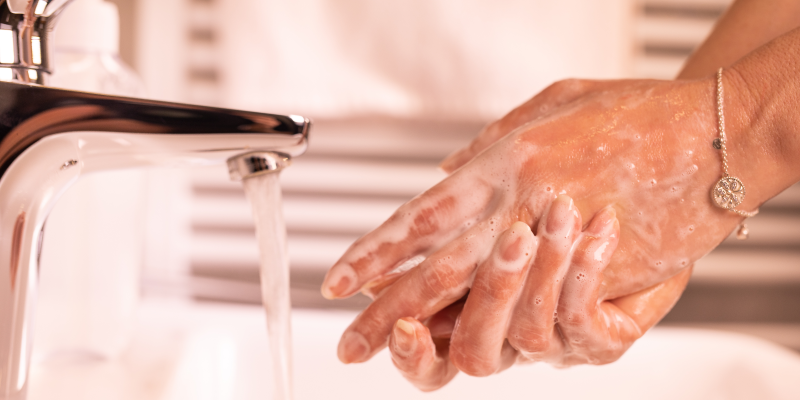 Proper hygiene is a fundamental aspect of healthcare that directly impacts the safety and well-being of both healthcare providers and their patients. Maintaining a high standard of hygiene is critical for preventing the spread of infections and ensuring that the care provided is safe and effective. As healthcare-associated infections (HAIs) are a significant concern, adhering to strict hygiene practices can prevent the spread of infections among patients and healthcare workers.
Proper hygiene is a fundamental aspect of healthcare that directly impacts the safety and well-being of both healthcare providers and their patients. Maintaining a high standard of hygiene is critical for preventing the spread of infections and ensuring that the care provided is safe and effective. As healthcare-associated infections (HAIs) are a significant concern, adhering to strict hygiene practices can prevent the spread of infections among patients and healthcare workers.
Maintaining good provider hygiene is not only beneficial for patients – it’s critical for patient safety, particularly for those with weakened immune systems. Good hygiene practices protect patients from infections and complications, making it a matter of life and death in some cases. Maintaining proper hygiene is not just about safety; it also upholds the professional image and reputation of healthcare providers. Neglecting hygiene can lead to legal and professional consequences, given the ethical and legal obligations healthcare providers have to protect patient health.
Before care
Before interacting with a patient, it's essential to start with thorough hand hygiene by washing hands with soap and water for at least 20 seconds or using an alcohol-based hand sanitizer. According to the Centers for Disease Control (CCD), handwashing is the single most important factor in preventing the spread of germs. After handwashing, gloves should be used when handling patients, bodily fluids or contaminated surfaces. Personal Protective Equipment (PPE), such as gowns, masks, and eye protection, should be worn when necessary. According to Enviro-Master, providers should be sure to check the following actions off of their list when completing their hygiene routine:
- Facility Managers should be sure to have all PPE stocked and easily accessible for providers. They should also include filling the hand sanitizer dispensers in their routine as well.
- Any soiled linens or bedding should be properly disposed of into a laundry bin. Additionally, uniforms and attire should always be clean and free of contaminants, and medical equipment must be cleaned and disinfected before use.
- All fluids such as blood, vomit, or saliva should be immediately wiped up and cleaned.
- All medical equipment should be disinfected following patient treatment.
- Floors should be swept and mopped as the floor can be a breeding ground for bacteria.
During care
During patient care, healthcare providers should observe proper respiratory hygiene by covering their mouth and nose when coughing or sneezing to prevent the spread of respiratory infections.
Safe handling techniques should be followed during patient transport, positioning, and movement to prevent injuries and minimize cross-contamination. Waste management is crucial, and waste materials, including sharps and contaminated items, must be disposed of in designated containers.
Airway hygiene
When conducting airway assessments, management and suctioning, aseptic techniques should be maintained, including the use of sterile gloves, masks and clean equipment. Additionally, suction equipment should be clean and properly maintained, and suctioned material must be disposed of safely.
After care
After interacting with a patient, providers should ensure they wash their hands thoroughly, even if gloves were worn, and remove gloves carefully and dispose of them properly. PPE, such as gowns and masks, should be removed safely to avoid self-contamination. Providers should change into clean uniforms if they become soiled or contaminated, and all reusable equipment should be disinfected and cleaned, with disposable items discarded. Continuous training and reminders are essential to ensure compliance with these rigorous hygiene practices.
Good hygiene is the cornerstone of healthcare, as it safeguards patients and healthcare workers from infections and helps uphold professionalism and fulfill ethical and legal obligations. By following a comprehensive hygiene checklist, healthcare providers can create a safer and more reliable healthcare environment for everyone involved.














